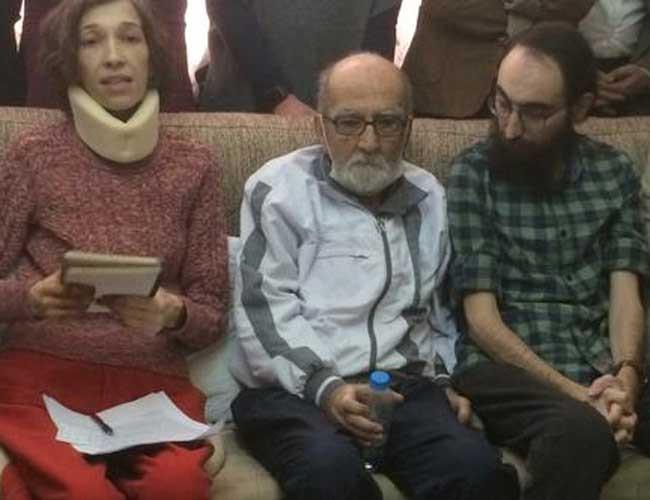
Turkish educators Nuriye Gülmen and Semih Özakça, who went on hunger strike after being dismissed from their jobs by a state of emergency decree, have announced the end of their hunger strike after 324 days.
Gülmen and Özakça on Jan. 26 decided to end their strikes after the State of Emergency Commission ruled to reject their demand to reinstate them to their posts.
“We loved our resistance very much, we love it. Every day we felt more liberated. They [the people] are waiting for the story of the rebellion and the ones who do not surrender. The resistance came out to protect our honor. This resistance rescued our honor,” Gülmen said.
Nuriye Gülmen, who had been on hunger strike since she was dismissed from her post following the 2016 coup attempt, was convicted on Dec. 1 of belonging to a banned far-left group, though the court ordered her release pending an appeal.
The 35-year-old was sentenced to six years and three months in jail for being a member of the outlawed militant leftist the Revolutionary People’s Liberation Party (DHKP-C), a group Turkey, the EU and the U.S. have deemed a terrorist organization, defense lawyers told Reuters.
She was found not guilty of lesser charges including organizing illegal rallies.
Gülmen had been hospitalized before the trial began due to her worsening health after seven months of surviving on water, herbal tea and sugar and salt solutions.
The primary school teacher Semih Özakça, 28, who has also been on hunger strike, was acquitted of similar charges. The Ankara court had ordered his release on Oct. 21 for the remainder of the trial, on the condition that he wear an ankle monitor.
The pair was detained in May and jailed pending the start of their trial in September. On Sep. 12, days before the teachers were due in court, the prosecution issued detention warrants for the lawyers who were set to defend them.